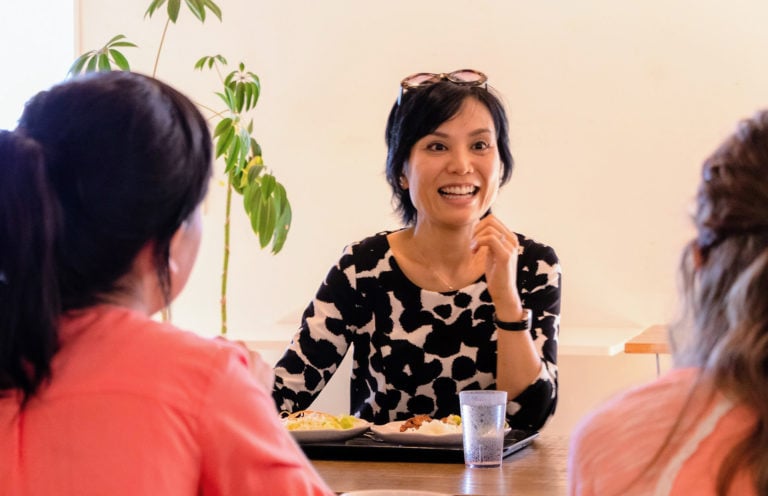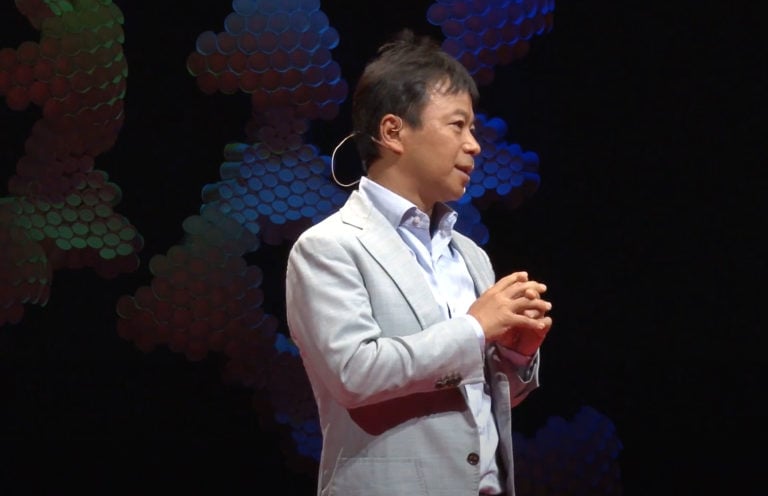 This post was contributed by Jolyon Hinton.
This post was contributed by Jolyon Hinton.
In addition to chairing the ISAK art department, Mr. Hinton also plays a leading role in our CAS program, serving as the G-11 & G-12 CAS coordinator. Mr. Hinton holds a Bachelor’s degree in Art Education from Cambridge University and has been teaching in an international environment for nearly 30 years.
The Creativity, Activity and Service Programme is one of the three core elements of the International Baccalaureate, and an integral and important part of the education at ISAK. In grades 11 and 12, students work together in teams of about seven students on collaborative projects, the focus and mission of which is of their choosing. These projects allow them numerous opportunities to exercise autonomy and make choices about what is important to them, while constantly needing to keep a clear eye on the needs of others around them; and if the project is of the ‘service’ persuasion, then on the needs and responses of the recipients of their actions. It goes without saying that all sorts of challenges can be thrown up along the project’s course, from differences with colleagues, to realizations that they have no real connection to the mission, or to the dropping out of a significant non-governmental organization with which they had been working.
Each team sets and adjusts its goals and mission, and naturally tends to evaluate the success of the project in these terms. ISAK’s perspective, however is slightly different. Yes, we are aiming to create young leaders who will bring about change, but our emphasis is upon the equipping and skilling of students to allow them to effect change in the future. We are interested in cultivating attitudes and approaches that will be life-lasting, and in providing experience which will allow them to be high-functioning agents of change beyond ISAK. So, setbacks, problems and failures, while they may be demoralizing, offer opportunities for learning that a sweetly running project just may not deliver. You could say that, in a sense, we deliberately put students in ‘harm’s way’ and use difficulties as points of learning and growth.
As such, the projects work towards both the mission of the school to create future leaders, and the IB CAS objectives, which are a set of seven Learning Outcomes.
I am pleased to be able to say that all the Grade 12 students have passed CAS, some with outstanding portfolios which are testament to their rich and passionate involvement within and beyond the community. The present Grade 11s have just completed Project Week: some short snippets and images from six of the eight projects are included below.
Animal Protection Project
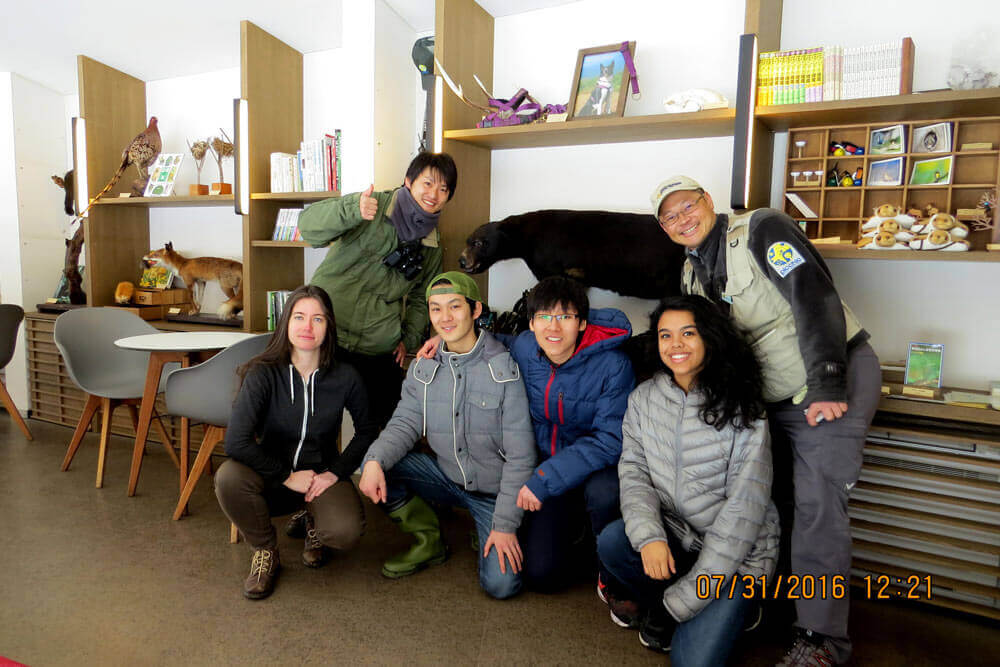
The goal of APP is to raise awareness of the human impact on animals, both domestic and wild. To address that goal, we made the focus of Project Week the planning of a workshop for ISAK students. On the first day, we visited Mr. Ikuya Hatano, a falconer in Hoshino, so we could learn more about raptors and the general problems facing their species. We also went on a nature tour with Picchio, a local wildlife research center, so we could learn about styles of tours and gather more information about wildlife in Karuizawa. Our short-term goal is to hold a workshop on raptors for the ISAK community. In the long term, we hope to hold a nature tour around campus, workshops in other international schools around Japan, and set up branches of our project in those schools.
Iridescent Project
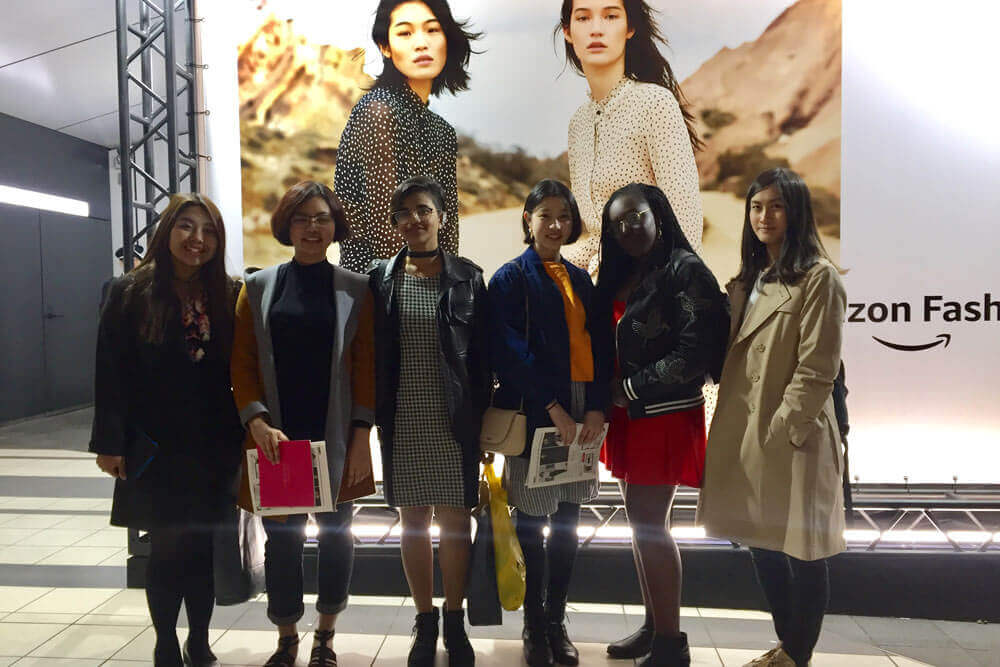
The team split into four sections, each one with its own task for Project Week.
The Visual Team works on creating ‘zines’ which are small magazines created by independent artists. Our zines are centered around female empowerment, but also incorporate themes such as isolation, mental illness and relationships. We attended a book workshop, during which we had the opportunity to make small journals out of various materials. It was incredibly useful for us to acquire knowledge about letterpress printing, bookbinding, illustration techniques and other aspects of making books and other printed materials, whether it is analogue or digital.
The Audio Team is working on creating a podcast, featuring various written and spoken poetry pieces that we analyze and report on in the context of gender and relationships. During project week, we attended a meeting with Mrs. Wagner, Co-founder of Lean In Tokyo. It is an organization based on the philosophy outlined in the book ‘Lean In’, by Sheryl Sandberg. Its mission is to build a society where all women can pursue their ambitions. We interviewed her about her activities in Lean In Tokyo, and discussed our project’s future goals and possible collaboration.
The PR Team focused on networking and getting potential sponsors interested in our organization. We gave a presentation to Mr. Ide (SCSK Corporation) and the ‘’Diversity Promotion’’ and ‘’Human Resources Planning Departure’’ sections of the company. We introduced our project to them and the final goal of the Project Iridescent. Also, we had a discussion with them, talking about what kind of actions they take and have been making towards eradicating gender inequality in Japan.
Outdoor Project
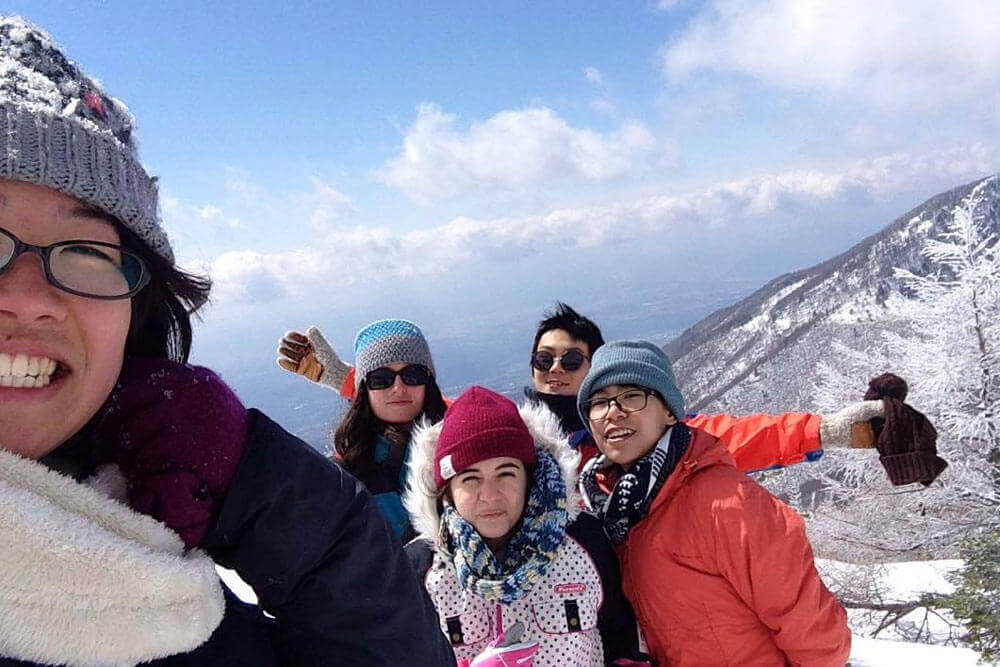
Throughout the week we organized a variety of activities that members of our community took part in. One of the main highlights of this week was when we realized how simple it can be to build community. Often grand gestures are not necessary; instead small impromptu acts that bring unusual mixes of people together can be more effective at building community. We look forward to giving our community more of these moments of happiness and enjoyment.
Daicon Project
![]()
During the Spring Project Week 2017, DAICON took part in multiple activities. Our main focus was to expand our website contents using new technology and to create a promotional video for Karuizawa. We also worked on web-page design and blackboard design for a local client to promote his business. Using our cameras and our drone, we were able to successfully capture amazing photos and footage and put them together to create a 1-minute promotional video, alongside other smaller series of videos for specific locations around Karuizawa. A group of us also travelled to Hakuba city, in order to study how tourism works for an area that has similar climate and sales points to Karuizawa. We also interviewed a researcher and designer of policy management in Hakuba, to understand tourism on a larger scale.
Project Nepal
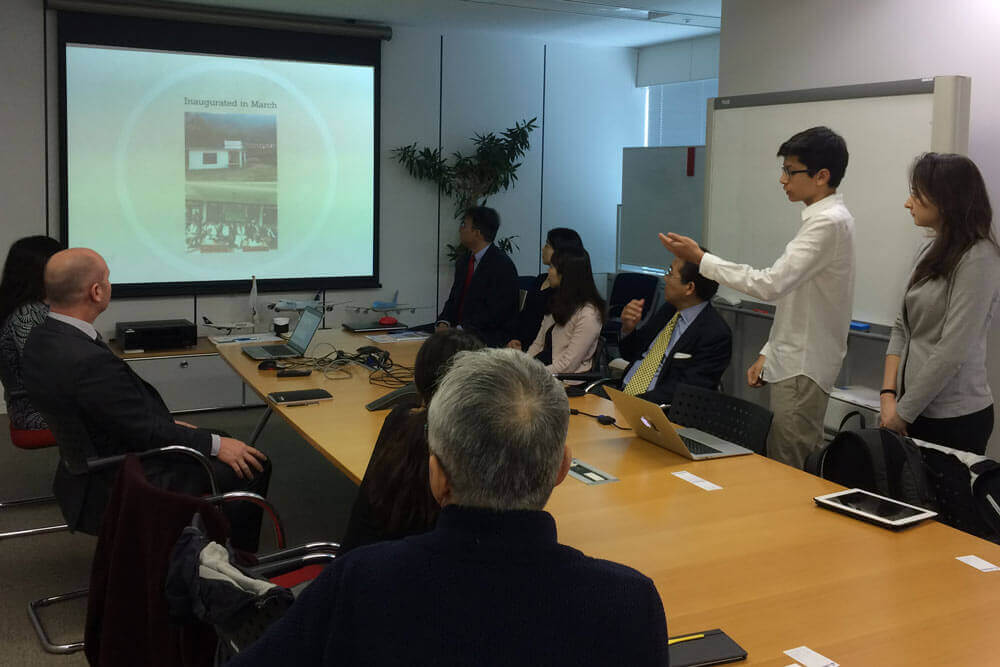
This Project Week, our team worked on developing our social media and getting in touch with different companies that we might work with. We also held Skype calls with our contacts in Nepal, which was great, to see how the projects were going. We went to Tokyo to have a meeting with The Panalpina World Transport Japan and Toy Factory International. The goal of this was to achieve potential collaboration with Panalpina. The meeting with Panalpina went well, with us realizing we still need lot of funds for our Doctor Car project. We discussed potential support from them in two ways, either by them introducing our project to their associates worldwide, or directly with the shipping company. We feel like we had a great project week in preparation for the future of our project and our trip to Nepal in the summer vacation.
Happy Japan
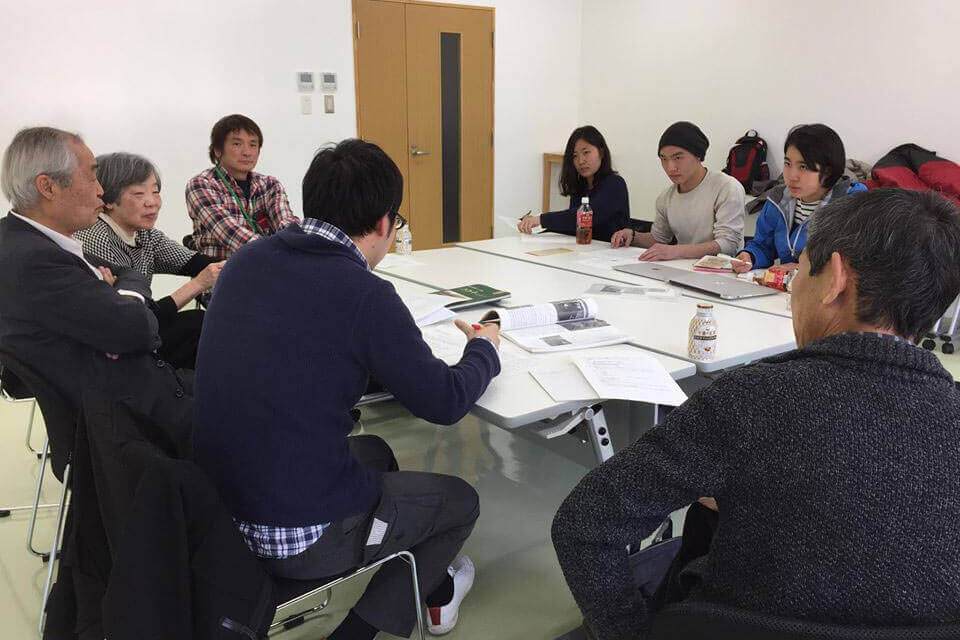
A month before PW, we had much discussion about the future direction of our project. As a group, we were not functioning well, so there was not a good atmosphere among us. Project Week brought us back together a group and we were also able to learn more about Karuizawa. Throughout the week, our CAS group had activities with people from Karuizawa National Trust and people working in Karuizawa-Bori (Karuizawa wood-carving). With the National Trust, we worked to create a new idea for the Karuizawa-Bori industry, and created maps of the town. Also, one of our project members went to Ueda to interview several people from the town hall, since we heard that Ueda was working to preserve their traditional dance performance. The information and advice they gave allowed us to realize the importance of having a close relationship with the community and knowing about the trends in it. We are still working with Karuizawa National Trust and are looking forward to bringing positive outcomes to the Karuizawa community.
Karuiku
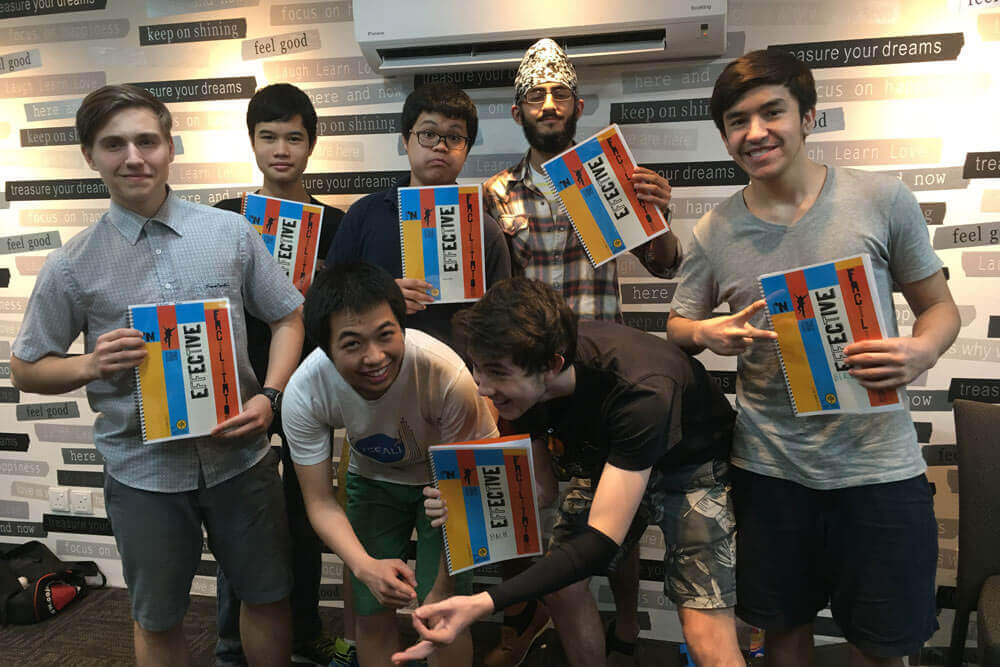
For Project Week, our CAS group took a week-long trip to Malaysia to work with Ajeet, Jasraj’s cousin, who is a professional public speaking trainer and workshop facilitator. For the first part of the week, we worked with Ajeet who pointed out any and all the flaws she saw in our current workshop model, and in our communication skills. We gained harsh but invaluable advice through this process, as we broke down our CAS project piece by piece explaining it to her. We learned, for instance, why our efforts to attract more people to our workshops have been in vain these past few months. In the second part of the week, we assisted Ajeet in holding a two-day workshop for Burmese and Pakistani refugees from the age of 12-19, implementing the feedback we had received in the first few days. After realizing the errors in our previous attempts at holding workshops and making a conscious decision to incorporate Ajeet’s advice as best as possible, we successfully managed the workshop and all its related activities. For the first time, it felt as if we all collaborated as a team and shared a common goal, rather than being seven individual group members. Not only did Ajeet laud us with praise, but the participants themselves commented on how the workshop was a life-changing experience for them. Needless to say, all seven of us consider this to be Karuiku’s greatest achievement to date. It would not be an exaggeration to claim that this Project Week changed the face of our entire CAS project; from how we operate as a team, to the ways in which we approach our participants. We hope to use the valuable lessons we’ve learned during the Project Week to hold better and more effective workshops back here in Japan.
UMI
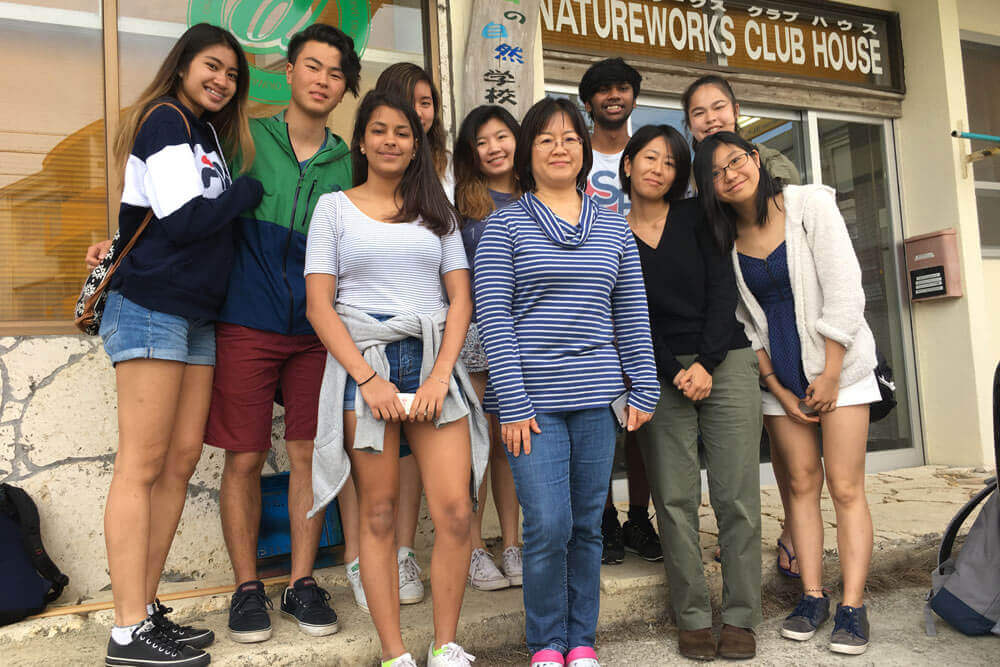
Project Week saw us host a workshop for 17 7th grade students. During the workshop, we gave them an introduction to Japan’s marine situation, the problems it faces, and held a series of interactive activities for them to participate in. We found the workshop gave us great insight into how we should approach not just future workshops, but the future of our project. We learnt that while teaching, it is crucial to consider the lenses through which we educate others – not only do we have to make sure the information we convey is relevant to our target audience, but the way we convey that the information is, as well.
We also made a trip to Hokkaido to a marine conservation organization. There was much nervousness and uncertainty to deal with on the trip, as we had to navigate a physical and communicational landscape that we were not familiar with. This instilled in us the need to plan ahead and pay attention to small details. Some parts of the trip ran much smoother than we anticipated, which also made us realise that not every single detail needs to be planned. The trip also redefined and solidified inter-group relationships – we realised that working as a team involves compromise, to smoothen the dynamic between members, and that all of our choices, insignificant as they may be to us, have different consequences for different people. Moving forward, we will use the common foundational knowledge and insight we have gained from this Project Week to aid us in remaining a cohesive team and forging new, meaningful relationships with other organizations.
